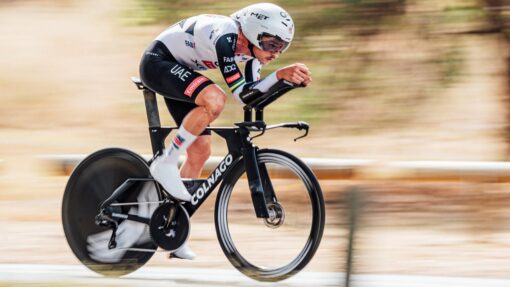Seismic Santos tests may hurt koala trial
Tracey Ferrier |
When so-called thumper trucks arrived to explore for gas near her NSW farm in 2007, Geraldine McKay literally felt it in her bones.
She reckons her horses did too because they leapt the fence and took off in a panic when the seismic vibrations started up.
“It was like an ongoing earthquake – and I’ve been through an earthquake – but it didn’t stop. The vibrations were coming up through the ground and the reverberation, we could feel it through our feet, right up into our heart,” the Liverpool Plains farmer says.
“It was a very disconcerting feeling. We had stock that were absolutely terrified, horses that were not bred to jump but jumped out of the paddock, fleeing the experience.”
Fifteen years on, Ms McKay fears a return of the thumper trucks to the Liverpool Plains after mining company Santos lodged a new application to carry out seismic tests for gas along a 63km corridor.
She feels for community members who might soon have the trucks crawling along the boundaries of their properties, but she’s also concerned for a koala population at nearby Gunnedah.
“Given the path that Santos has shown it’ll be taking, this will virtually hunt them out of the area.”
Gunnedah’s koala population used to be thriving but it’s now in steep decline thanks, in part, to the ravages of chlamydia, which has taken a devastating toll on wild koalas nationwide.
The sexually transmitted disease is a major threat to the survival of the endangered species, causing painful urinary tract infections, infertility, blindness and death.
In June, researchers began an important trial of a chlamydia vaccine on about 50 Gunnedah koalas, seeking to understand how effective and long-lasting it is in a truly wild population.
But it’s feared the results – which could inform a national vaccine rollout – could be tainted if Santos is allowed to generate seismic waves in the vicinity of their habitat.
That’s because stressed koalas are prone to outbreaks of chlamydia.
Mark Krockenberger is a professor of veterinary pathology at the University of Sydney, which is helping test the vaccine for its developer, University of the Sunshine Coast Professor Peter Timms.
“The risk, to me, is that it’s right at the site where the majority of our animals are. They are a population that’s already under pressure and if we add this to it, it may mean we’re unable to work out whether the vaccine works or not,” Prof Krockenberger says.
“I just don’t know what the effect will be. My presumption is it could have an effect on our trial.”
The trial started in June and researchers need at least a year to monitor the population, gather health data and make meaningful conclusions, but even longer is preferable.
Another researcher has told AAP that Santos advised the seismic survey work had to be done by the end of the year and could not be postponed.
Santos says no dates have been set for the testing, and regulators are yet to approve it.
It says seismic surveying is “low-impact and non-intrusive” and Santos will conduct its activities in accordance with environmental protections and any specified conditions if testing is approved.
“Santos has already advised landholders and the research team that we will provide advance notice of our activity and we will work with them to address any concerns,” a company spokesperson said.
The company appreciates the importance of the vaccine research and will act in a way that does not put the research or koalas at risk, the spokesperson said.
Thumper trucks is a term used by governments and industry but Santos, in an information sheet handed to community members, calls them vibrator trucks.
Typically, they are fitted with large pads that rest on the ground and generate bursts of acoustic energy which bounce back and help identify underground structures that might hold gas.
The NSW Resources Regulator says it has received an application from Santos to conduct a seismic survey and it will consider a review of environmental factors.
However that review won’t be made public until after a decision is made on whether the testing can proceed.
“Santos has applied to undertake seismic surveys over a corridor of approximately 63km within the Gunnedah Basin. Surveys are carried out along and within three metres of existing roads. The method of seismic testing involves the use of two to three vibroseis trucks (vibrating trucks),” it said.
“The Resources Regulator will be determining the application in accordance with the Environmental Planning and Assessment Act with input from other agencies as deemed required. A determination is likely in coming months.
“The Review of Environmental Factors, to be considered as part of this determination, will be publicly available once that determination is made.”
The NSW government has set an ambitious goal to double koala numbers in NSW by 2050 and has contributed money to the testing of the chlamydia vaccine.
AAP


